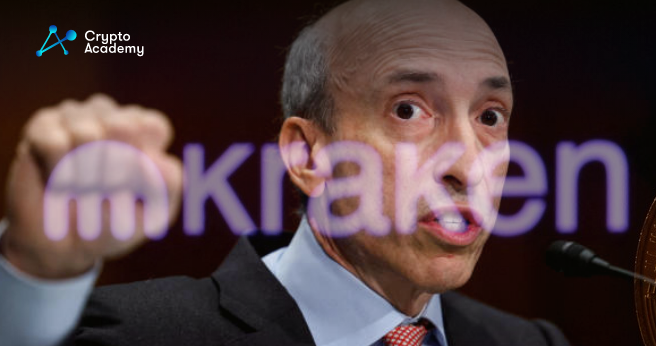According to a statement released by the Securities and Exchange Commission (SEC) on Thursday, cryptocurrency exchange Kraken will “immediately” discontinue its crypto staking-as-a-service platform for U.S. clients and pay $30 million to resolve allegations that it issued unregistered securities.
According to the SEC, Kraken‘s registered businesses, Payward Ventures, Inc. and Payward Trading Ltd., will stop offering staking services and programs. Since at least 2019, the programs have made staking services accessible to the general public.
“The complaint alleges that Kraken touts that its staking investment program offers an easy-to-use platform and benefits that derive from Kraken’s efforts on behalf of investors, including Kraken’s strategies to obtain regular investment returns and payouts,” the SEC release said.
In a blog post, Kraken stated that all staked assets by U.S. customers would be immediately unstaked, with the exception of staked ether, which would not be unstaked until the Shanghai update to the Ethereum Network is implemented. Additionally, US clients won’t be able to stake any new assets (including ether). Non-American customers are unaffected.
On Thursday, the SEC filed a case in federal court.
Kraken’s website stated that their staking service would generate a 20% return, while the SEC news release implied it might even go as high as 21%.
According to a press release, the SEC’s assessment of Kraken’s staking arrangement emphasized the “risks” investors assume when staking their tokens with “staking-as-a-service” providers, who provide them “very little protection.”
Proof-of-stake blockchain networks like Ethereum retain their security through staking. The network’s decentralized validators post Cryptocurrency as a type of collateral to guarantee their integrity. They receive additional tokens as compensation for completing transactions. Many cryptocurrency investors lend their tokens to companies that run nodes and split the profits with them.
Customers of Coinbase (COIN) and a number of decentralized protocols, such as Lido, are also able to stake their coins.
“Whether through staking-as-a-service, lending, or other means, crypto intermediaries, when offering investment contracts in exchange for investors’ tokens, need to provide the proper disclosures and safeguards required by our securities laws,” said SEC Chair Gary Gensler. “Today’s action should make clear to the marketplace that staking-as-a-service providers must register and provide full, fair, and truthful disclosure and investor protection.”

